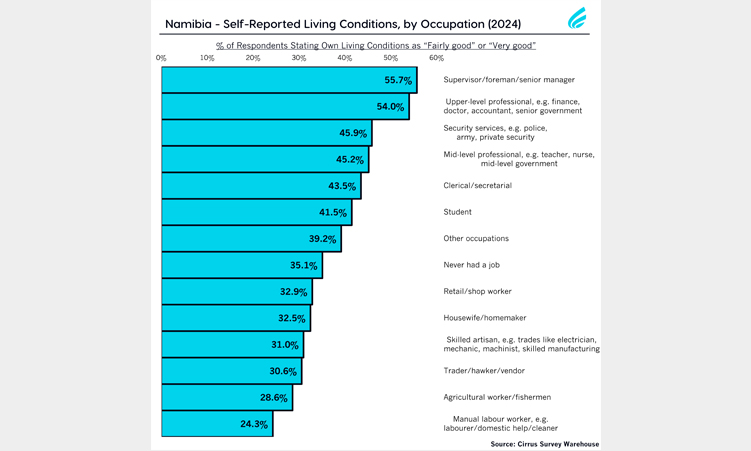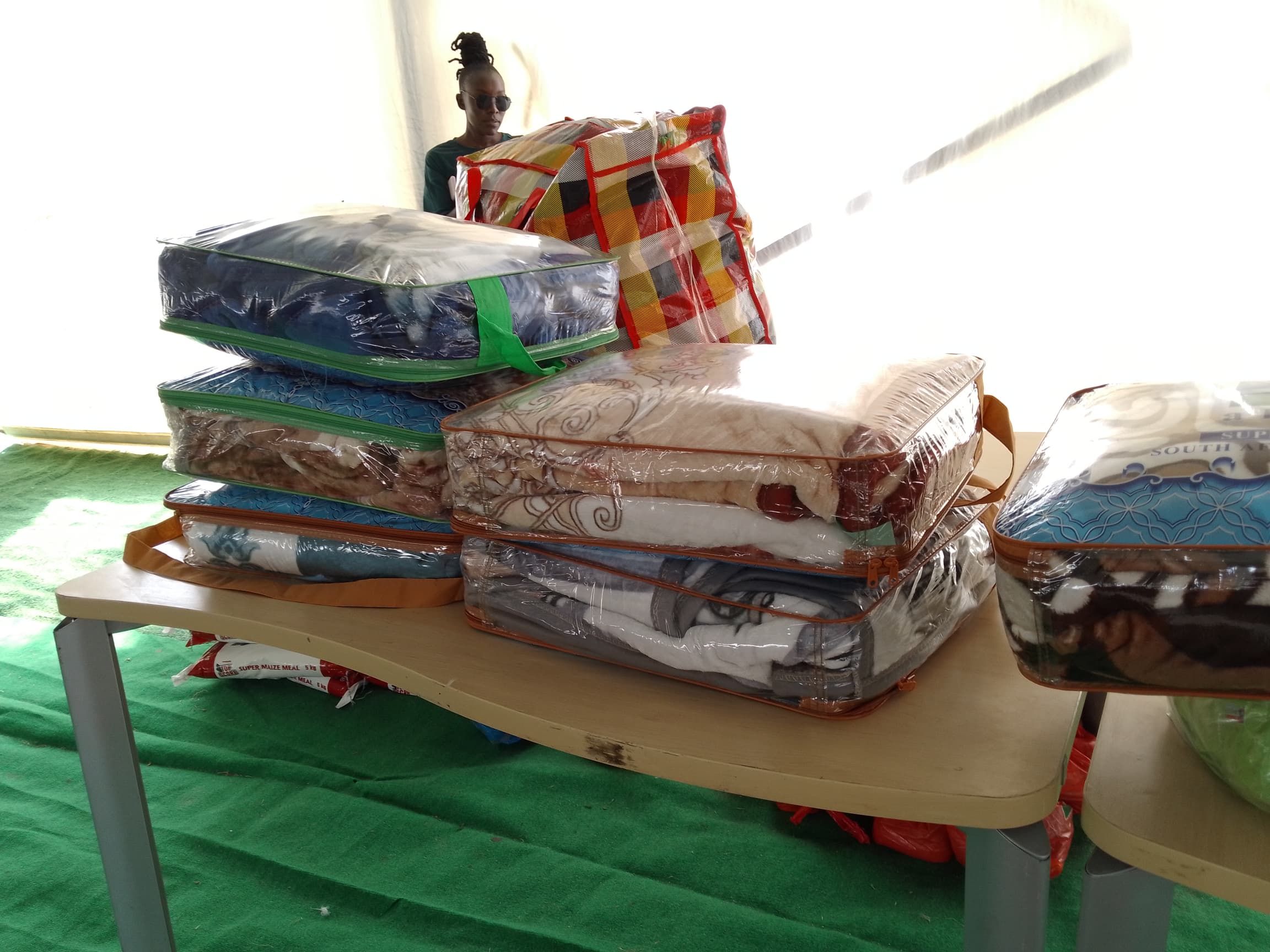When Namibians were asked to rate their personal living conditions on a scale ranging from “very poor” to “very good”, 34.6% described their situation as “good” or “very good”.
However, when disaggregated by occupation, self-reported living conditions vary significantly.
More than half of individuals in supervisory roles, as well as upper-level professionals such as doctors, accountants, and senior government officials, reported positive living conditions. In contrast, fewer than a quarter of manual labourers – including domestic helpers, cleaners, and general labourers – reported this.
Broadly speaking, individuals in occupations involving manual or physical work are far less likely to report favourable living conditions compared to knowledge-based roles.
Fewer than one-third of respondents working in artisanal trades, retail and informal trading, agriculture, fishing, or related manual sectors reported positive living conditions.
Age and life stage may also influence perceived living standards within occupational groups. Respondents in youth-dominant occupations, such as students (or those who have never worked), are more likely to live with parents or in institutional housing (e.g. hostels), which could skew this interpretation.
Clerical and secretarial roles – including receptionists, office administrators, and similar support functions, tend to fare above the national average in self-reported living conditions, while less than a third of homemakers report positive conditions.
Stay informed with The Namibian – your source for credible journalism. Get in-depth reporting and opinions for
only N$85 a month. Invest in journalism, invest in democracy –
Subscribe Now!










